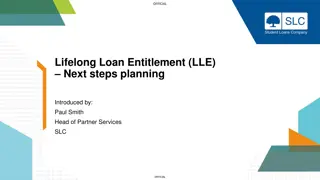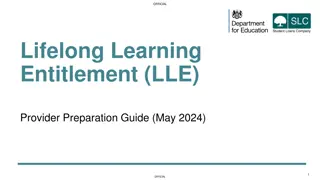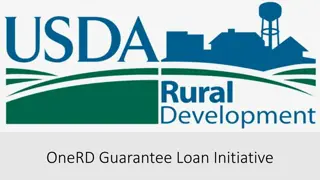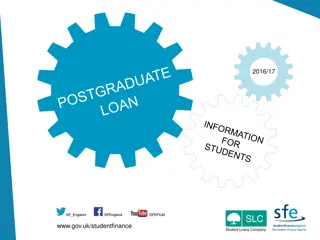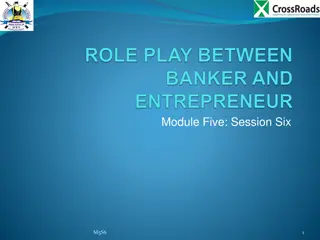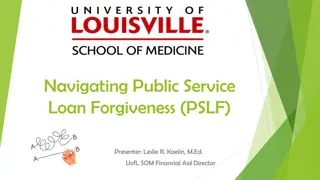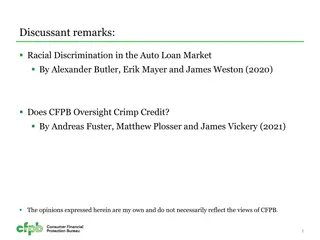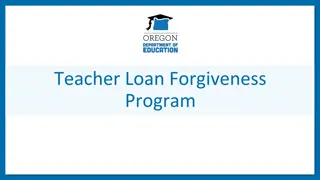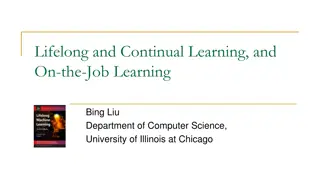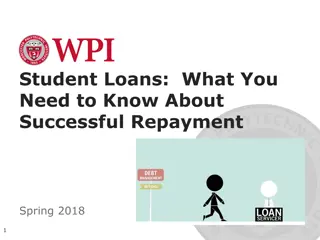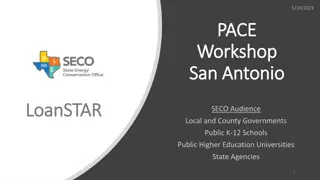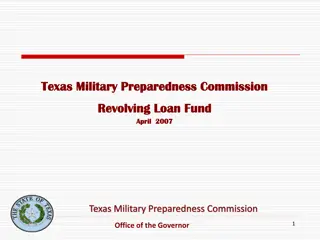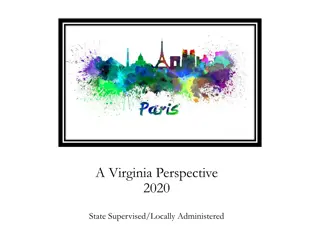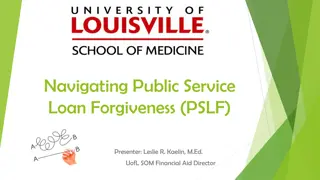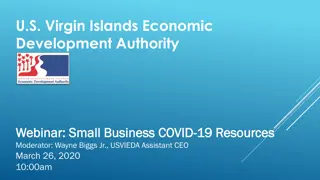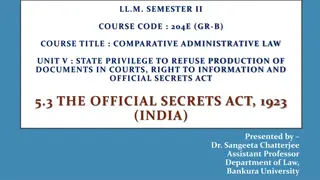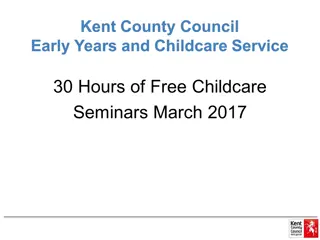Official Lifelong Loan Entitlement (LLE) Introduction and Eligibility Details
Lifelong Loan Entitlement (LLE) is a student finance system offering up to 4 years of funding for individuals to pursue post-18 qualifications. The funding, valued at £37,000, can be used for full qualifications or modular study at levels 4-6. Organisational roles and personal eligibility criteria are outlined, with emphasis on age limits and prior government funding considerations. Course eligibility requirements and changes are also detailed.
- Student finance
- Lifelong Loan Entitlement
- Education funding
- Post-18 qualifications
- Organisational roles
Download Presentation

Please find below an Image/Link to download the presentation.
The content on the website is provided AS IS for your information and personal use only. It may not be sold, licensed, or shared on other websites without obtaining consent from the author. Download presentation by click this link. If you encounter any issues during the download, it is possible that the publisher has removed the file from their server.
E N D
Presentation Transcript
OFFICIAL Lifelong Loan Entitlement (LLE) Next steps planning Introduced by: Paul Smith Head of Partner Services SLC OFFICIAL
OFFICIAL LLE introduction Lifelong Loan Entitlement (LLE) is a student finance system providing up to 4 years of funding for people to study over their working lives The funding is worth 37,000 (at the current value of tuition fees) LLE can be utilised to fund study across post-18 qualifications from levels 4-6, either through studying for a full qualification, or through modules of these qualifications Funding at modular-level will be phased in over time To be eligible for LLE, a course must be defined in terms of the credit value of the full degree programme or of a module component this course/this module carries X credits OFFICIAL
OFFICIAL Organisational roles DfE set and own the LLE policy, and the statutory provisions made through regulations SLC will be the accountable organisation for the administration of the LLE system, concurrent to its existing roles for student finance for Welsh, NI and Scottish students, and for English students completing courses on the current HE student finance system OfS will be accountable for the Register of Providers who can assess suitability for funding, and the setting of initial and ongoing Conditions of Registration IFATE approves and publishes which providers can deliver HTQs SLC will work in partnership with careers advisors, guidance staff and FE and HE recruitment and outreach teams to incorporate student finance into wider engagement on education participation OFFICIAL
OFFICIAL Personal eligibility There is unlikely to be significant change to nationality, citizenship or residence rules Students will be eligible irrespective of any equivalent level qualifications, which no longer apply Applicants must be age 60 or lower on the intended start date of their course. So a mature student moving through a modules-based pathway needs to consider their age limit for each course undertaken if they could be aspiring to a full qualification Reduced rates of maintenance loans for students aged over 60 at the start of their course Prior government funding of tuition fees support at L4-6 will be taken into account when determining levels of available LLE OFFICIAL
OFFICIAL General course eligibility changes Course eligibility - continuing requirements Course eligibility changes Must lead to a recognised qualification Must be scheduled as 3 academic terms over a year Must be provided by an OfS authorised provider Must be designed to provide an average 21 hours of self- and guided-learning over a minimum 24 weeks At least 50% guided learning must be delivered within the UK Credit values of courses must be definable Must have academic years not exceeding 12 calendar months. Tuition fees and fee loans must be paid direct to a UK bank account Providers must adhere to guidance from the Competition and Markets Authority Tuition Fees / Fee Loan limits must be charged to a maximum regulated amount OFFICIAL
OFFICIAL Course eligibility in 2025/26 Level 4-6 courses delivered in the UK that are eligible for funding for English-domiciled student under the current SFE service All qualifications which currently attract SFE funding as undergraduate courses. This includes: PGCE ITT courses at level 7 medical courses years 4 and 5 integrated master s courses foundation years which are part of a degree course ALL-funded Level 4-6 technical qualifications. The finalised list of approved qualification will be confirmed following a technical consultation Eligible courses that are in certain priority areas or longer than the standard 4 year entitlement may be able to access additional entitlement, considering additional entitlement for special years Foundation, placement, study abroad etc. OFFICIAL
OFFICIAL Module eligibility in 2025/26 Qualifications currently funded under ALL at Levels 4-6 HTQs currently funded under SFE up to academic year 2024/25 Where the full course is eligible and available Each module must carry a minimum credit value of 30 credits. Each module must carry a minimum credit value of 30 credits, so may require consolidation of modules of smaller credit values in order for the course to be eligible. NB: Funding under LLE for modules of undergraduate degrees will be introduced from academic year 2027/28 OFFICIAL
OFFICIAL ALL funded learners Level 4/5 (AY 2022/23 to Feb 23) 2021/22 approved applications 37,659 3,271 798 65 41,793 2022/23 approved applications 27,117 2,953 739 29 30,838 Learning aim level Level 3 Level 4 Level 5 Level 6 Total OFFICIAL
OFFICIAL Credits and fee loans The student enrols on the course with defined credits and continues studies (by undertaking guided and self-learning as now), until withdrawal, suspension or transfer The defined credits for that course have an associated value, derived from the total credits and the cost-per-credit value As the student starts each module, and upon receipt of a valid attendance confirmation, the loan (to the value of number or credits x cost per credit) is deducted from their LLE Account, added to their ICR loan account and paid direct to the lead provider As the student starts each full degree programme, upon the receipt of valid attendance confirmation, the loan to the value of the study period is added to the student s LLE balance OFFICIAL
OFFICIAL Strategic considerations Can we afford to offer modular courses / can we afford not to How do we market modules Targeted or generic course marketing Targeted audiences How easy will it be to price a module will we always stick to the maximum What s our minimum viable student numbers for given module(s) Direct delivery or through partnerships ? Will we encourage modular progression for students recruited with low attainment at entry level With the removal of ELQs, is there a new marketing opportunity Incorporating IAG into outreach and recruitment Employer partners and funding IAG Regulatory framework implications Inclusion in APPs Incorporation into TEF measures IFATE / OfS registers OFFICIAL
OFFICIAL Operational considerations How well do students understand credits ? Incorporating student finance into offers Targeted or generic course marketing Targeted audiences What comes first, the effort of producing a course specification, gaining approval, identifying academic staff and location, or instead, first achieving minimum viable student numbers and then finalising the course. Accommodation provision for students starting via an initial module(s) If students studying modules are less likely to require accommodation, what happens if we convert them midway to the full degree. Course specifications No minimum duration only minimum credits Shorter full time courses Registration confirmations centralised or dispersed administration Hardship support plans for modular-learners OFFICIAL


